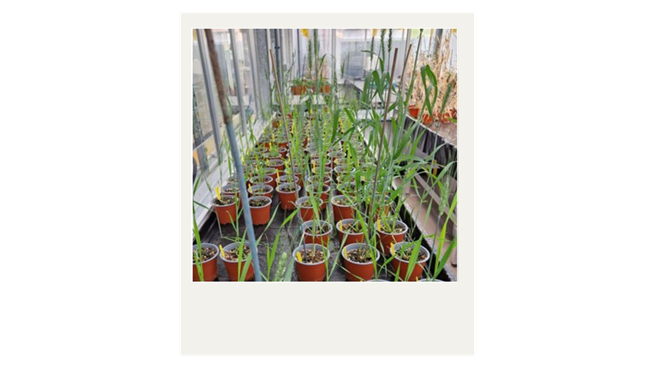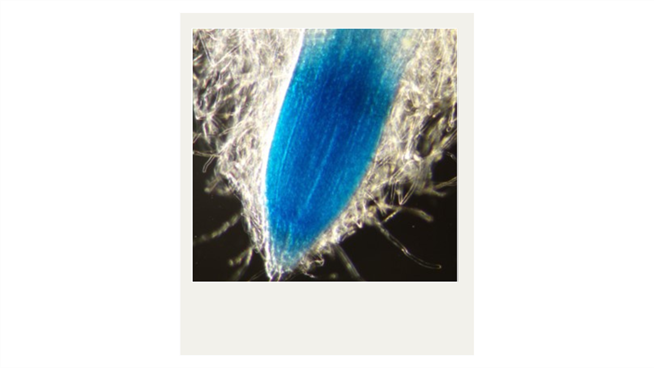Blog: My experience with the Sustainability Summer internship
Hi, I’m Tanshpreet, a second-year Liberal Arts and Natural Sciences (LANS) student here at UoB.
Delving into biological and physical sciences is a major passion of mine, which is why I was absolutely thrilled to land a research internship last summer through UoB’s very own Sustainability Internship Scheme. It was such a rewarding experience, and I can’t wait to highlight how this internship opportunity could be a game-changer for you too, if you decide to apply and be chosen! So, if you're interested in learning more, keep reading.
Why I applied to my particular project
Eager to explore my passion for sustainability, I stumbled upon a Canvas notification about an exciting opportunity on UoB’s Sustainability Summer Internships. Since I was keen on getting some real work experience, particularly in scientific research, I decided to read further about the projects being offered.
One project immediately struck me: “Exploiting silenced genes for resilient wheat” with Dr Marco Catoni and his lab group from the School of Biosciences.
The goal was to find ways to take advantage of the genetic structure of wheat to enable crops to grow in new and challenging environmental conditions induced by climate change. I really liked the prospect of using genetics and molecular biology to solve an issue as complex and important as sustainable food production.
Plus, I felt like this project could make a positive contribution to society. It seemed to be a real eye opener into the world of research, giving me a taste of what it's really like to dive into groundbreaking work.

The experiments I did
My main responsibility was to determine whether the genetically modified plants my host research group, the Catoni Lab is growing, have been successfully transformed with specific genes or not.
I did this by extracting the samples’ DNA, quantifying how much DNA I had extracted and how pure it was, doing a polymerase chain reaction (PCR) to amplify the DNA and then viewing it after carrying out gel electrophoresis. It was a long and sensitive process!
Despite that, I learnt how to use my time productively in the lab and to work very accurately - skills that are valued everywhere! Even though it can get very repetitive to analyse DNA from 100 samples, I loved every minute of it and was so grateful to UoB to be awarded this opportunity.
Plus, I also carried out a GUS assay (short for “beta-glucuronidase”, an enzyme common in bacteria) for the samples to determine if the plant is genetically engineered, and viewed them under the microscope. In doing so, I learnt a variety of experiments and techniques in depth that students don’t usually get to see in teaching labs! It was hands-on learning at its finest, and it opened my eyes to the endless possibilities in science.

The brilliant people I worked with and what I learnt from them
Not only was the experience so incredibly rewarding, but the people that I worked with in the Cantoni Lab were very welcoming towards me, and I genuinely felt part of the group.
The lab group, and in particular, the lab manager was really good at teaching me how to carry out the experiments mentioned above accurately and safely, and she reassured me when I felt a bit nervous about presenting my progress and doing a journal club for the first time.
These may seem like normal things, but they honestly just made me focus on my work and ask for advice when I needed it. I felt like I could talk to everyone, so I learned a lot about the research interests of the rest of my group and those of all of the other research groups on the same floor as us!
A reflection on my experience and what’s next
During these six weeks, I realised the importance of dedicating my time to something that I enjoy doing and that motivates me to stay curious and be better. I want to have more experiences like this in the future!
If my experience has captured your interest, you can apply for one of these internships, which are currently open now for applications. Good luck!
Apply for a 2024 Sustainability Summer Internship
At Birmingham, our ambition is to deliver sustainability through pioneering research and innovative education, the behaviour and actions of our students and staff, and engagement with our local communities. Together with the Birmingham Institute for Sustainability and Climate Action (BISCA), we have a series of Summer Sustainability internships available for non-graduating undergraduate students this summer (up to 6 weeks long, 25 hours per week). These paid posts will enable you to get directly involved with some of our globally-recognised research groups at the University. Priority will be given to Birmingham Scholar students (am I a Birmingham Scholar?), but all are welcome to apply.
Last year, projects ranged from lab-based research exploring the development of clean and commercially viable alternative fuels through to sustainable film and tv production and the execution of policy analysis on migration and climate change in North Macedonia.
To find out more and to apply, sign up for the Sustainability Internship page on Canvas (you will need to self-enrol). The deadline for initial applications is the 28 March 2024 at midnight. Good luck!